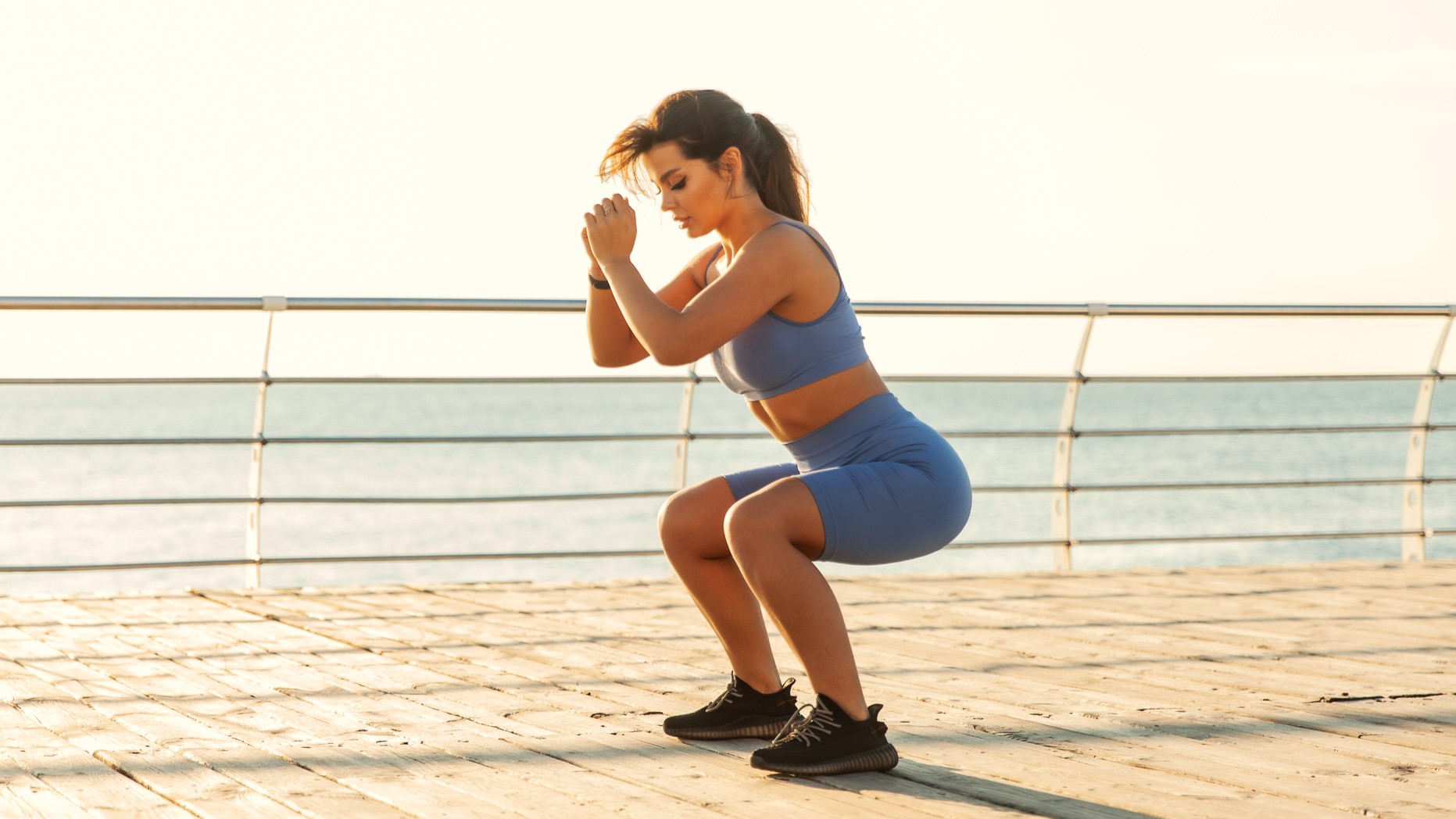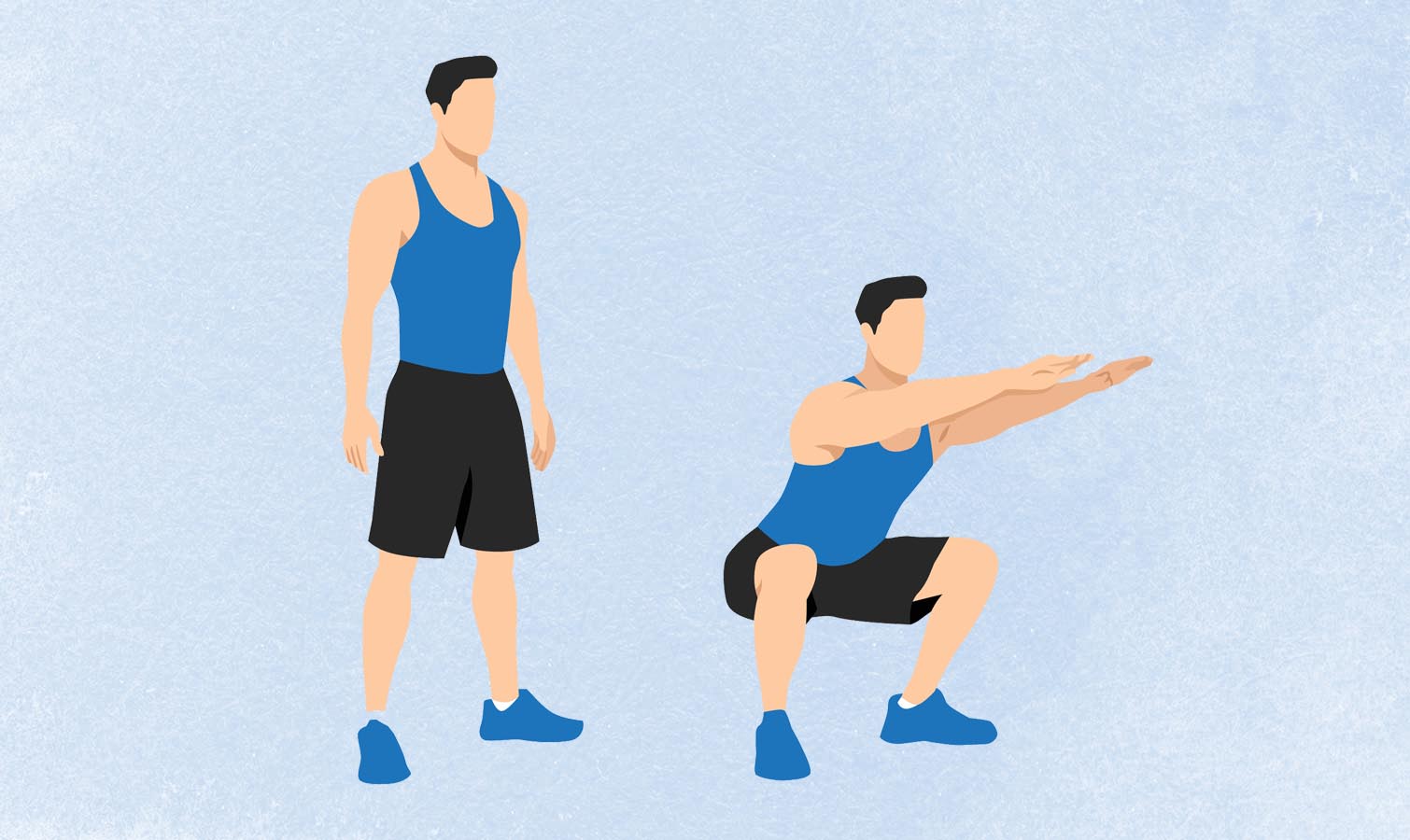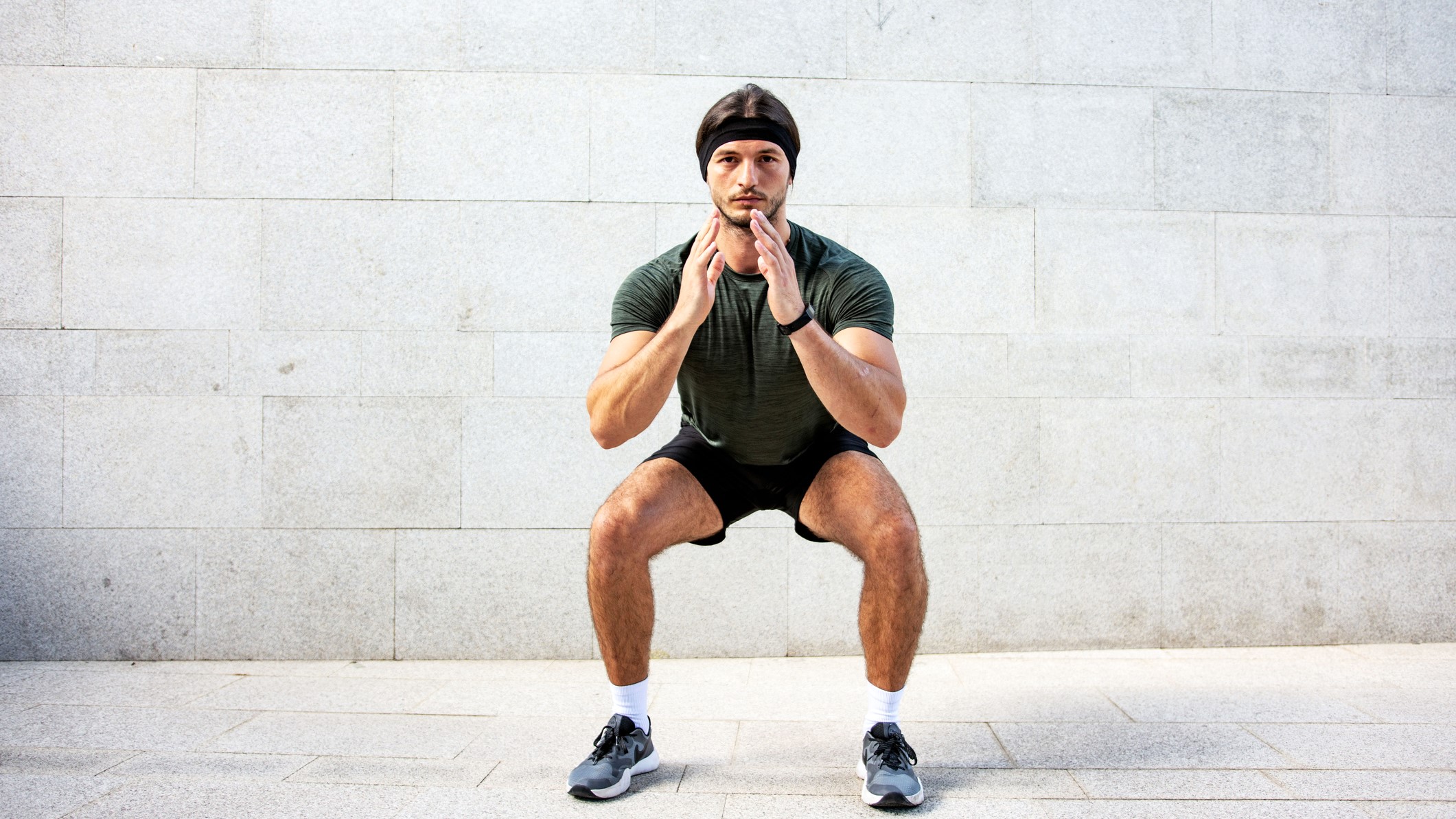
Type in "30-day challenge" on Google, hit search, and we guarantee thousands of challenges will come up; the 30-day plank challenge, the 30-day gratitude journal challenge — even the 30-day floss your teeth challenge — but the one that caught my eye was the 30-day squat challenge — toned legs and a lifted derriere sounded right up my street. So, why 30 days?
Small actions lead to big results it seems — and 30 days of squatting promised to do more than tone my lower body and strengthen my core — the benefits also promised to spill into improving my other hobbies like running and looking good in a pair of skinny jeans!
What are the benefits of a 30-day squat challenge?
“The squat is an effective exercise for strengthening your hamstrings, quads, and glutes without the need for any kit,” says Jack Claxton, Level 3 Personal Trainer and Personal Training Ambassador at David Lloyd Clubs.
“This one move will also work your core and all the tiny stabilizing muscles in your hips, knees and ankles, which can help stave off any annoying niggles whilst helping you to build muscle all over.
How to complete the 30-day squat challenge
First of all — I found a 30-day challenge online. I then got to grips with the basic squat — if I’m going to do this, I’m going to do this properly.
Here’s how to squat with good form:

- To start, stand with your feet hip-width apart, your toes pointing forward, your chest up and your core braced.
- With your arms out in front of you or by your sides, push your hips back as you lower yourself as if you were sitting down on an invisible chair.
- Once your hamstrings are parallel to the ground, pause then push through your heels to come up to standing.
- Squeeze your glutes as you stand, then bend your knees to lower and repeat.
What to look out for
A few things to look out for when mastering the squat is to make sure your knees aren’t caving in, “this can put pressure on the knee joint and can lead to injury,” explains Claxton.
“To prevent this, concentrate on pushing your knees out as you lower down — and don’t squat down as low.” Squat depth is not as important as proper technique.
“Make sure your heels are planted into the floor at all times too," adds Claxton. “If they lift off as you lower then you are leaning too far forward and probably have poor flexibility and mobility in your calves and ankles. Again don’t go down as low - and if you can place your heels on some weight plates or something similar,” says Claxton.
With my form now cracked and down to a tee it was time to get started.
I completed the 30-day squat challenge, here's what l learned
Day one started with 15 squats and progressed to 20 on day two. By day 30, I'd completed 150 — which sounds like a lot but the small daily increase in numbers meant my legs and entire lower body could cope with the increased volume. I didn’t have to do them all in one go either; I rested and took a breath when I needed to.
Here is what my 30 days looked like;
After being a huge fitness fan for years — I’ve certainly done my fair share of squats — but not this consistently. Squats tend to be in my gym plan once or twice a week, not every day. The beauty of these squats is that they are body weight, so you can do them anytime and anywhere. Here's what happened to my body:

My legs and glutes felt the burn
The first few days were easy. Yes, I felt my quads, glutes and hamstrings working hard but I managed to get the reps done very comfortably.
As I moved to the higher numbers, however, my mental strength dwindled. To help this I tried mixing the squats up by moving my feet wider into a sumo squat, closer into a narrow squat, or adding a side leg raise — a few reps of each on rotation helped keep my mind distracted.
The mental benefits were great too
Did I feel better for them? Most definitely. Just the simple fact of sticking to the challenge gave me a confidence boost, and having to count my reps every morning and fit in my squats made me feel more alert much earlier on in the day. I found it easiest to bang them out right away — just wake up and get them done.
Physically, I noticed my thighs felt stronger and I had less bottom jiggle. I got a little endorphin rush straight after too, which helped with my mood and productivity.
I enjoyed working with my body weight
Stripping my squats back to bodyweight also really helped me to hone in on my squat technique and feel into each rep. Now I’ve completed my 30-day challenge, I'm looking forward to adding some weight in the form of barbells, dumbbells, and kettlebells — and challenging myself further.







